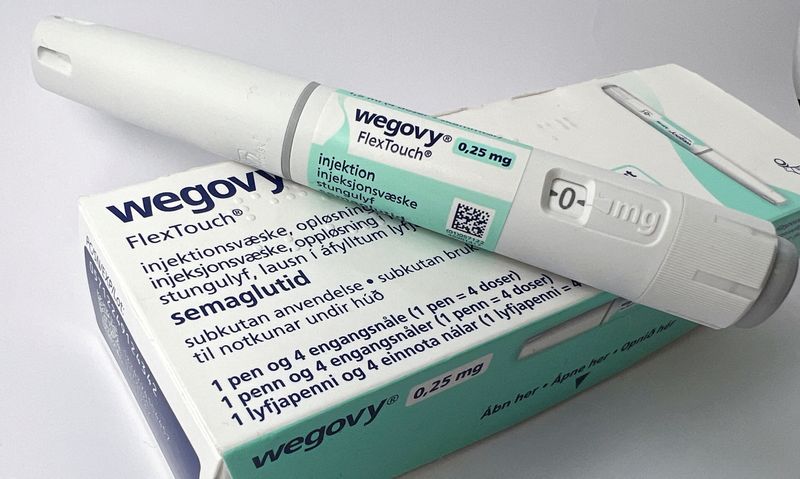Investing.com -- Shares in WeightWatchers surged by nearly 38% in extended hours trading on Wednesday, pointing to an extension in sharp gians logged in the prior session after the firm announced it would offer a compounded version of Novo Nordisk (NYSE:NVO)'s popular weight-loss drug Wegovy.
Major drug companies, including Denmark's Novo Nordisk and peer Eli Lilly (NYSE:LLY), have struggled to keep up with the soaring demand for their blockbuster GLP-1 obesity medications, which have been shown to help patients lose up to 20% of their weight on average.
Because of this shortage, US regulators have allowed businesses, including telehealth groups like Noom and Hims & Hers Health to make compound versions, or close recreations of brand-name medicines.
The process refers to the practice of combining or altering drug ingredients to create a medicine designed specifically for an individual patient's needs, the US Food and Drug Administration has said.
In a statement, WeightWatchers -- also known as WW International (NASDAQ:WW) -- said the price of its compound offering would start at $129. Chief Exeuctive Tara Comonte added that the company is "committed to ensuring our members still have access to effective alternatives" during ongoing shortages in Novo's Wegovy and Ozempic.
Shares in WeightWatchers surged by more than 46% on Tuesday.
"[WeightWatchers] announced its long anticipated entrance into the compounded GLP-1 space, a needed step in to restart Clinical growth," analysts at Morgan Stanley said in a note, referring to recent weakness in its exclusively branded segment.
"We don't think it's too late for [WeightWatchers] to regain share, but execution on the offering is critical to success as peak season rapidly approaches."
The announcement comes after the FDA recently said that tirzepatide -- the medication Eli Lilly markets as Zepbound for weight loss and Mounjaro for diabetes -- is no longer in short supply in the US, ending a shortage classification it first put in place in 2022.
Wegovy and Ozempic, however, remain on the FDA's shortage list.
